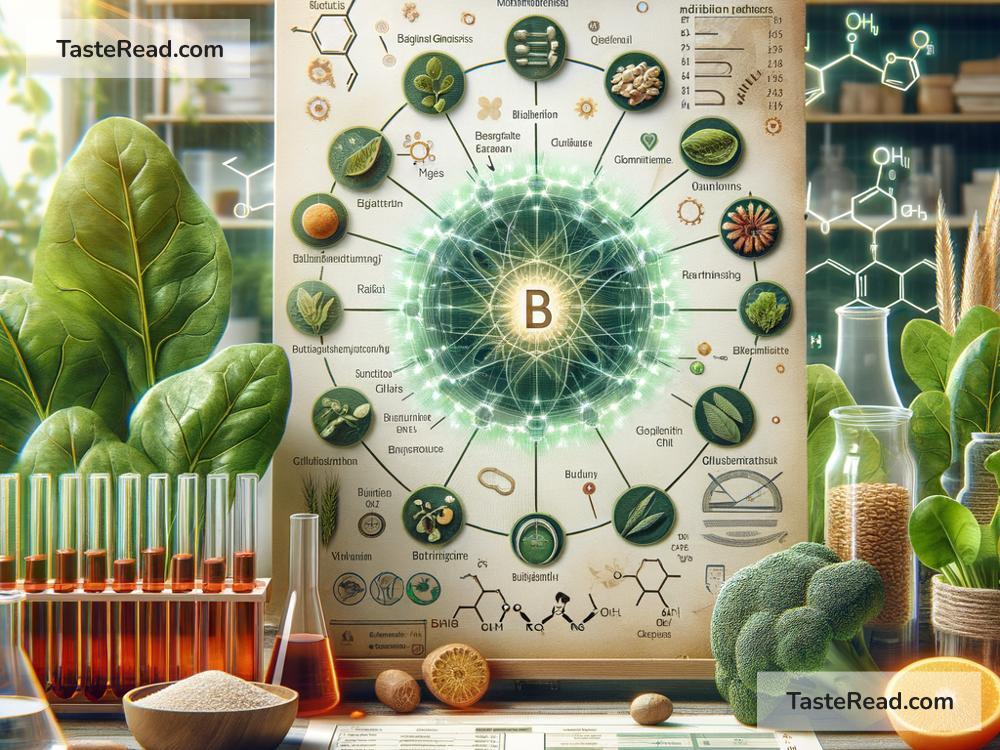The Role of Vitamin B58 in Metabolic Health
When it comes to staying healthy, vitamins play a big role. Each vitamin has its unique purpose in keeping your body running smoothly. You’ve probably heard of popular vitamins like Vitamin D, Vitamin C, or Vitamin B12. But today, we’re going to shine a light on the lesser-known Vitamin B58 and how it helps your body stay healthy, especially when it comes to metabolism.
Wait, Vitamin B58? Is That Real?
Before we dive in, let’s clear something up: Vitamin B58 isn’t a real vitamin. The B-vitamin family includes B1 (thiamine), B2 (riboflavin), B12 (cobalamin), and others—but not B58. Vitamins are named systematically, and the numbering stops well before 58. Perhaps you mistyped or misunderstood something about existing B vitamins.
Since Vitamin B58 isn’t a recognized vitamin, I can instead provide valuable information on the role B vitamins, in general, play in metabolic health. Let’s explore that.
What Are B Vitamins?
B vitamins are a group of nutrients that help your body produce energy, create new cells, and break down nutrients from food. They are “water-soluble,” meaning your body doesn’t store them for long, so you need regular intake from your diet.
There are several B vitamins, each with their own roles:
- B1 (Thiamine): Helps your body turn carbohydrates into energy.
- B2 (Riboflavin): Supports energy production and the processing of fats.
- B3 (Niacin): Involved in chemical reactions that produce energy.
- B5 (Pantothenic Acid): Assists in breaking down fats and sugars.
- B6 (Pyridoxine): Helps with brain function, mood regulation, and energy production.
- B7 (Biotin): Important for healthy skin, hair, and metabolism.
- B9 (Folate): Essential for making new cells, especially red blood cells.
- B12 (Cobalamin): Vital for nerve function and the production of DNA.
How Do B Vitamins Support Metabolic Health?
Metabolism is a word that describes all the chemical processes in your body that keep you alive and functioning. At its core, metabolism is about turning food into energy and getting rid of waste products. B vitamins are like helpers that assist in this process.
Here’s how they contribute to metabolic health:
Energy Production
Ever wondered how your body takes food and turns it into energy? That’s metabolism in action. B vitamins, especially B1, B2, B3, and B5, are crucial to this process. They help break down carbohydrates, fats, and proteins so your cells can use them as fuel. Without enough B vitamins, your body might struggle to keep your energy levels high, leaving you feeling tired.
Cellular Health
Your body is made up of trillions of tiny cells, and keeping these cells healthy is essential for your overall metabolism. B9 (Folate) and B12 (Cobalamin) are especially important for creating and repairing cells. They’re involved in making new DNA and helping your body produce red blood cells, which carry oxygen to tissues.
Hormone Regulation
Hormones are chemical messengers that control various processes, like hunger, stress, and blood sugar levels. B6 plays an important role in producing and regulating these hormones. For example, B6 helps your body produce serotonin, a hormone that affects your mood, and insulin, which manages blood sugar levels.
Preventing Fatigue and Weakness
When your body doesn’t have enough B vitamins, it can lead to issues with metabolism and energy production. For example, a deficiency in B12 can cause anemia, fatigue, and even neurological problems. Ensuring you get enough B vitamins helps keep your metabolism efficient and your energy levels stable.
What Happens When You Don’t Get Enough B Vitamins?
A lack of B vitamins can cause many problems. Symptoms can include tiredness, weakness, difficulty concentrating, and digestive issues. Over time, serious deficiencies may lead to nerve damage or chronic conditions.
If your diet lacks diverse, nutrient-rich foods, you could be at risk of a B-vitamin deficiency. People with certain medical conditions, pregnant women, vegans, and older adults may need extra care to ensure they get enough B vitamins.
How Can You Get More B Vitamins?
Luckily, B vitamins are found in many foods. Here’s where you can find them:
- B1 and B2: Whole grains, fortified cereals, milk, and eggs.
- B3: Meat, fish, poultry, and nuts.
- B5: Avocados, broccoli, meats, and eggs.
- B6: Bananas, chicken, fish, and potatoes.
- B7: Eggs, nuts, and seeds.
- B9: Leafy greens, beans, and oranges.
- B12: Meat, eggs, and dairy. If you’re vegan, you may need a supplement or fortified foods.
Eating a balanced diet rich in fruits, vegetables, whole grains, and lean proteins will help you get all the B vitamins you need to support healthy metabolism.
Conclusion
While Vitamin B58 doesn’t exist, the role of the real B vitamins is undeniably important for metabolic health. These essential nutrients help turn food into energy, keep your cells functioning, and assist in hormone regulation. Without them, your body wouldn’t be able to operate at its best.
To stay healthy and keep your metabolism working properly, focus on eating a varied, nutrient-rich diet. If you suspect you’re not getting enough B vitamins, talk to your doctor or a nutritionist for guidance on supplements or specific foods to include in your meals.
Remember, small changes in your diet can lead to big benefits for your health!


